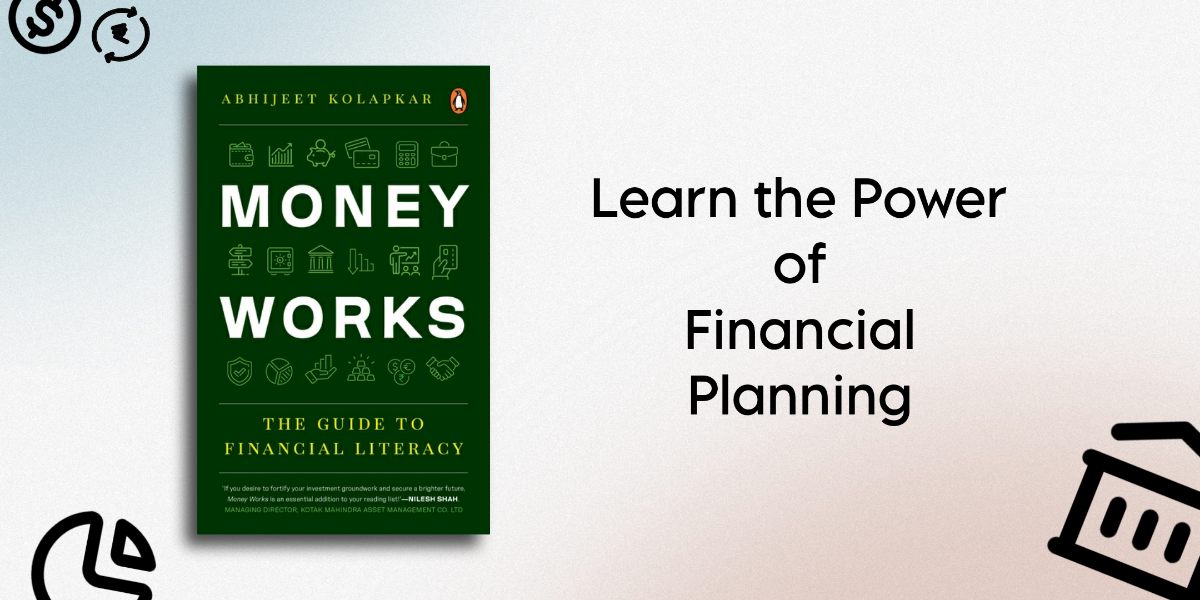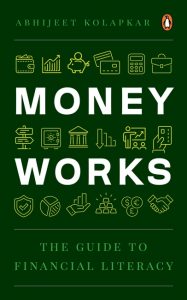Ever wondered why saving money feels like a snooze-fest? Ankur Warikoo’s Make Epic Money has the answer!
In this no-nonsense guide, Warikoo breaks through the boredom, offering a blueprint to make your savings hustle just as hard as you do.
Get ready for a learning experience that’s not just about saving but about discovering the power to walk away from the mundane and live life on your own epic terms!

“Life will throw everything but the kitchen sink in your path, and then it will throw
the kitchen sink. It’s your job to avoid the obstacles.”
– Andre Agassi, Open
Saving isn’t sexy.
We should save. We get it.
For the future, for our marriage, for our kids, for retirement.
Blah, Blah, blah. Heard it all before.
Yet, we don’t.
Because saving isn’t sexy. Or fun. Or exciting.
It’s boring.
The future seems so far off.
Our goals seem so far off.
“Retirement? I haven’t even started earning properly yet!”
AND we’re not making enough money…
AND we’ll miss out on life…
Our friends are putting up reels of sundowners in Goa.
Why should WE save?
So, we postpone saving.
We’ll start tomorrow. Next month. Next year.
Just not today.
But we should save.
Because. Life. Is. Crazy.
Almost like a Bollywood movie.
One moment, we’re happily dancing around a tree. Next moment, we’re hit by a flying coconut.
Plot twists and drama.
Just not as entertaining when it happens to us.
Medical emergencies. Job losses.
Lawsuits. Unexpected death in the family.
All horrible things to think about.
We hope (fingers crossed) they’ll never happen.
But we know that they might.
The absolute last thing we want to worry about in such times is whether we have sufficient funds to cover
us, and see us through.
Savings give you the ultimate F*** You Power
The power to walk away from a job you hate.
The power to handle a medical emergency without depleting your reserves.
The power to get a better interest rate on a loan.
The power to move into your own place.
The power to live life on your terms.
You don’t have to give up what you love.
Saving does not equal stopping spending. Sitting at home. Being miserable.
Once you’ve decided how much you want to save, spend the rest on whatever you want.
With no guilt.
Here are 13 tips to help you save more
→ Budget – boring but effective!
You can’t improve what you don’t measure.
Minimum 20% of your income has to be saved, every month/year.
→ Automate your savings
If we have money in the bank, we tend to spend it.
It’s not always easy to do the right thing.
So, make the right thing easy!
Automate!
Sign up for as much EPF deduction as you can, so it never reaches you.
Do monthly SIPs (and don’t stop them!).
Open a separate investment account.
As soon as your salary hits, sweep your investment amount to that account.
Park your emergency fund, your SIP instalments, your lump sum investments in the new account.
→ 30-day rule
If you really want to buy something big, wait for 30 days.
Chances are you’ll decide you won’t need it.
→ Try a fortnightly money ‘fast’
Once a week or fortnight, don’t spend on anything. Anything.
Spoiler: This will require some advance preparation.
Food? Take food from home.
Ride to work? Carpool.
Coffee? Your office coffee machine was made for this non-spending day.
→ Choose debit/UPI over credit cards
Debit/UPI is money you actually have.
Credit cards give you the illusion of money that you may not actually have.
If you don’t have it, you can’t spend it. Ha!
The best part? It’s free (a lot of places still charge a surcharge on credit cards)!
→ Use credit cards, ONLY if you have 100% of the money
Credit cards can be a good thing:
● 30 to 45 days of an interest-free loan.
● Improved credit rating (if you make the full payment every month)
● Rewards and vouchers – who doesn’t want those?
But ONLY IF you have the full amount.
→ Make shopping lists and stick to them
It’s a fact – a list makes us stick to it.
Do this even if you’re buying online.
→ Rent, if you’re not a frequent user
Nowadays, everything is on rent – be it cars, gadgets or gowns!
So, don’t buy things you won’t use frequently.
In our parents’ time, renting was shocking.
Today, the mantra is ‘reduce, reuse’. Do that.
P.S. I rent my camera lens. The ones I like are insanely expensive and I pay peanuts to use them for 7
days a year at most!
→ Buy bigger sizes
Bigger sizes tend to be cheaper, per unit.
If you have the storage space, buy larger packs, particularly non-perishable items.
→ Use deal/discount sites
Use deals and discount sites as much as you can. There’s no shame in it.
It just means that you respect your money.
Your money will start to respect you back.
→ Pay off your loans faster
Just because you have a 25-year home loan, doesn’t mean you take 25 years to repay it.
Repayment initially goes more towards the interest and less towards repaying the principal.
Repay early, save!
E.g: Pay 1 extra EMI/year (13 instead of 12). Increase that EMI by 10% every year.
A 25-year loan reduces to 10 years. And you save 60% on your interest amount!
→ Buy life insurance when you’re young.
You pay a lower premium and get longer coverage.
Why wouldn’t you save on something so fundamental?
E.g., If you buy insurance when you’re 25 till you’re 65, you get 40 years of cover and STILL end up
paying a lesser premium, than if you were to buy the same cover at age 35 (and only get cover for 30
years).
→ Shop online in incognito mode
Prices keep increasing when you keep searching for items online – flight tickets, hotels or even products.
Switch to incognito mode.
You’ll get a price that is given to a new user.
This is usually the lowest price, because they want the new user to convert.
This can’t work on apps, so do your buying on your desktop or laptop.
Disclaimer: I have no way to prove this.
—————-
Use these hacks as a smart way to save more money, without compromising on your desires and needs.
Save as a gift to your future self:
The gift of security.
The ability to meet your life-goals.
A safety net for unpredictability.
Freedom to live life on your own terms.
But.
DON’T go through life focusing only on a savings mindset.
There’s a limit to how much you can save.
But remember there’s no limit on how much you can earn.
Keep finding ways to increase your income.
That will help you build wealth much faster than saving will.
***
Want to manage your hard-earned money like a pro?
Get your copy of Make Epic Money by Ankur Warikoo wherever books are sold.









